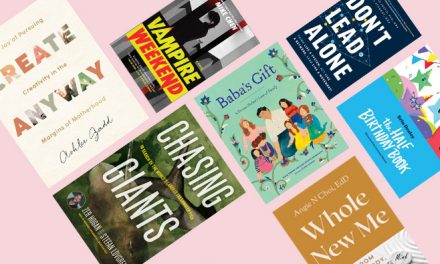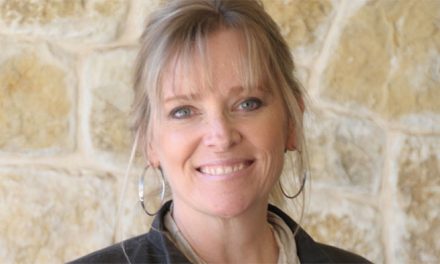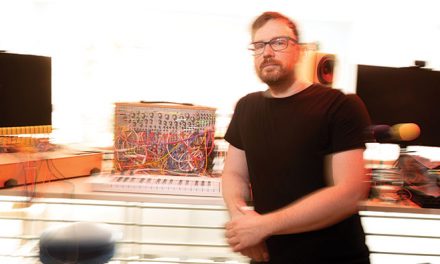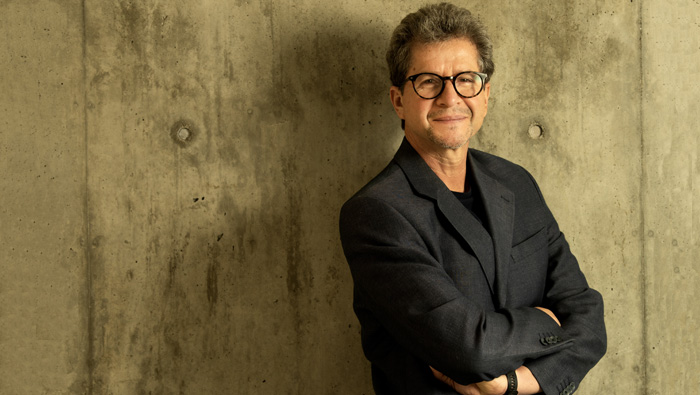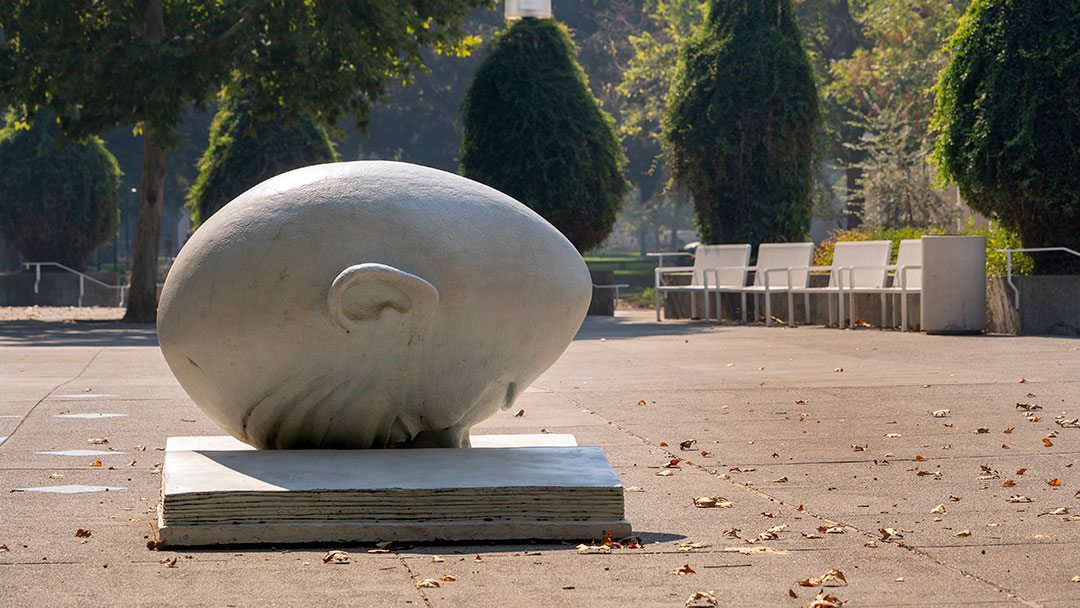
Piano Man
For David Kyle, associate professor of sociology at UC Davis, creativity finds him in every facet of life.
As a sociology scholar, he researches creativity as a political concept within a meritocracy. When he’s not giving lectures to students on campus, Kyle performs with his jazz band, Mercurial Mind. Drawing ideas from the audience about a place in the world or a few notes to begin with, many shows are completely improvised.
In addition to Kyle, Mercurial Mind is composed of: Naoki Saito, a multi-instrumentalist math professor at UC Davis; Bart Wise, bass player and a world-renowned rheumatologist at UC Davis; Jon Chengary, professional drummer and teacher; and Phillippe Gandiol, an artist from Paris who paints from start to finish at every gig.
“We really have an amazing group that has a wealth of musical influences and knowledge, which we all bring to bear in the moment,” said Kyle, who is also chair of the Senate Committee on Special Academic Programs at UC Davis.
Kyle has played piano since age 4. A former student of the Loyola Music Conservatory and the Peabody Institute of Johns Hopkins University, Kyle has also played in a variety of bands — in genres including jazz, salsa, rock and reggae — across the U.S. and abroad. During the pandemic, Kyle has regular solo gigs at the Great Bear Vineyards in Davis as a socially distanced pianist. He has taught jazz piano to a handful of students over the years, some going on to be professional musicians.
His research further fuels his interest and curiosity in the notions of creativity and talent. He investigates how societal definitions of these two ideas have been transformed and marketed throughout our social history.
“Essentially, creativity is the productivity of the mind that is new, but also of value to others. Creativity gets attached to external measures, external standards, external assessments, and it separates you from your own identity, [as if] the only measure of true creativity is when others validate it and reward it,” said Kyle.
Due to the institutionalization of creativity and the many ways it is not under our control, he added, concepts such as merit and talent have led many people to feel worthless and insecure. Some may experience imposter syndrome or feel as if they are not measuring up to others whose talents are deemed more desirable and superior in a meritocratic society. “That turns into a negative cycle because that does influence your ability to be creative and think, and perform and do well,” said Kyle.
His academic work allows him to view his creative endeavors differently, he said. “[My research has] changed everything I do and how I think about everything, truly, including making music,” Kyle said. “[It helps me] to be able to get some perspective and not feel as attached to these concepts, to allow myself to follow my own path and meet the criteria or standards or values that I set for myself, and to not be so concerned about external measures and validation.”

